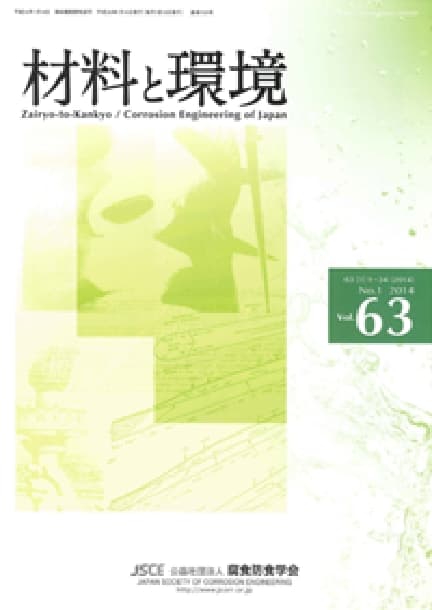Effect of Residual Carbon Deposits on Corrosion Behavior of Copper Tube Filled with Water
Masahiro Sakai, Osami Seri, Yutaka Yamada, Iwao Toda, Masanori Iitsuka
pp. 12-16
Abstract
Effects of residual carbon deposits and water quality on corrosion behavior of copper tubes for air conditioning systems have been investigated by field tests and electrochemical measurements. Copper tubes with/without residual carbon deposits were filled with tap or circulated water in storage tank for 60 days. Patina and slight corrosion attack only occurred on the surface of copper tube, which has the residual carbon film and is filled with the circulated water. The corrosion potential of the copper tube with high carbon deposits was higher than that with low carbon deposits. The galvanic current density from copper tube with high carbon deposits to copper tube with low carbon deposits shows a gradual increase. This means that the high residual carbon area of surface could be the catholic area when the corrosion occurs. It is found that the combinations of residual carbon deposits and contaminated water are detrimental to the corrosion of copper tube.










